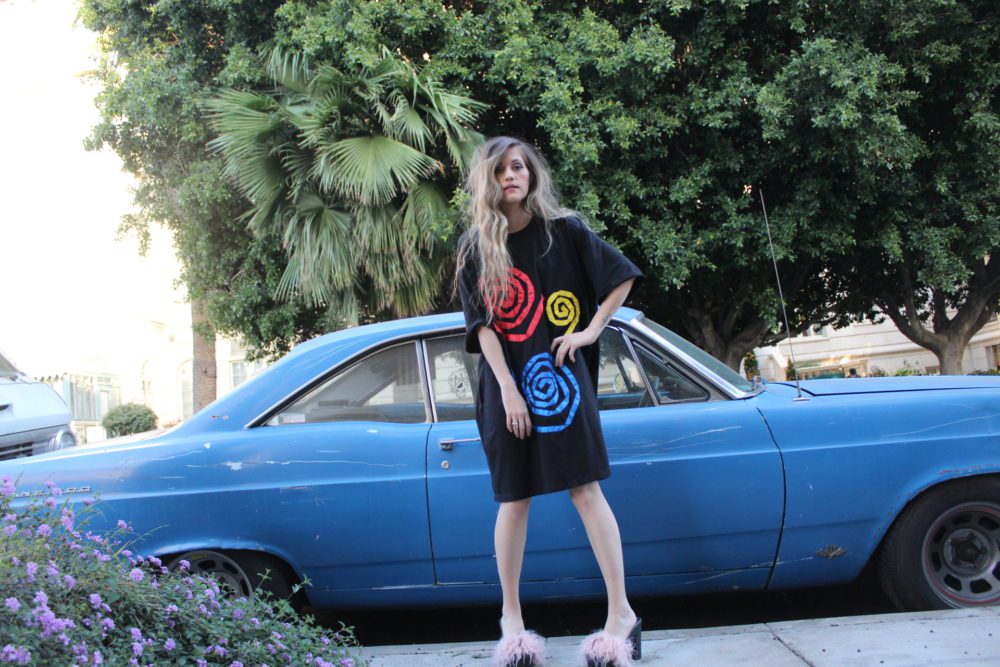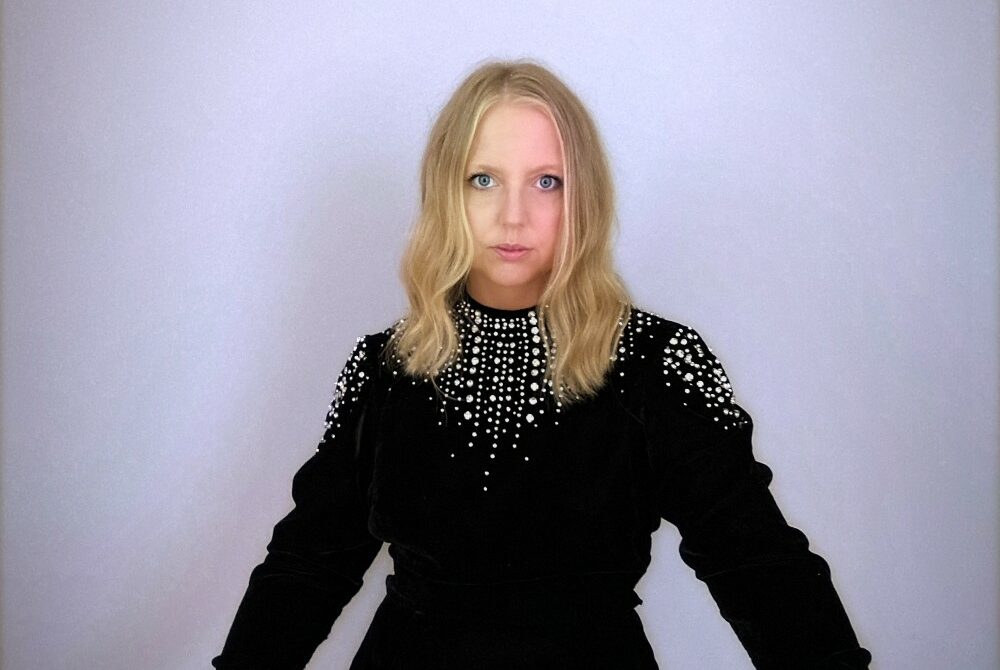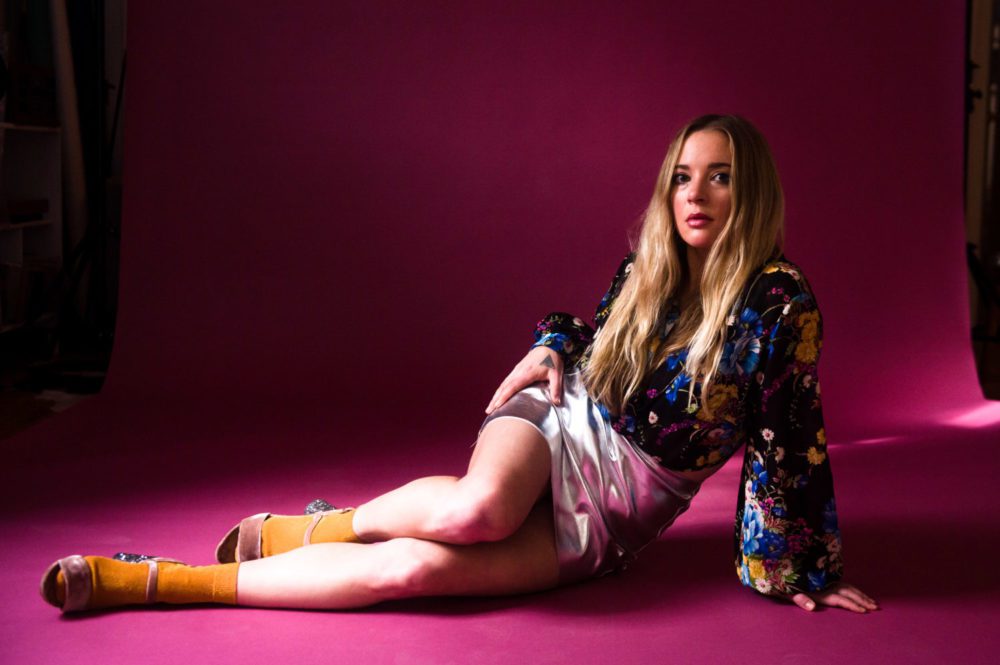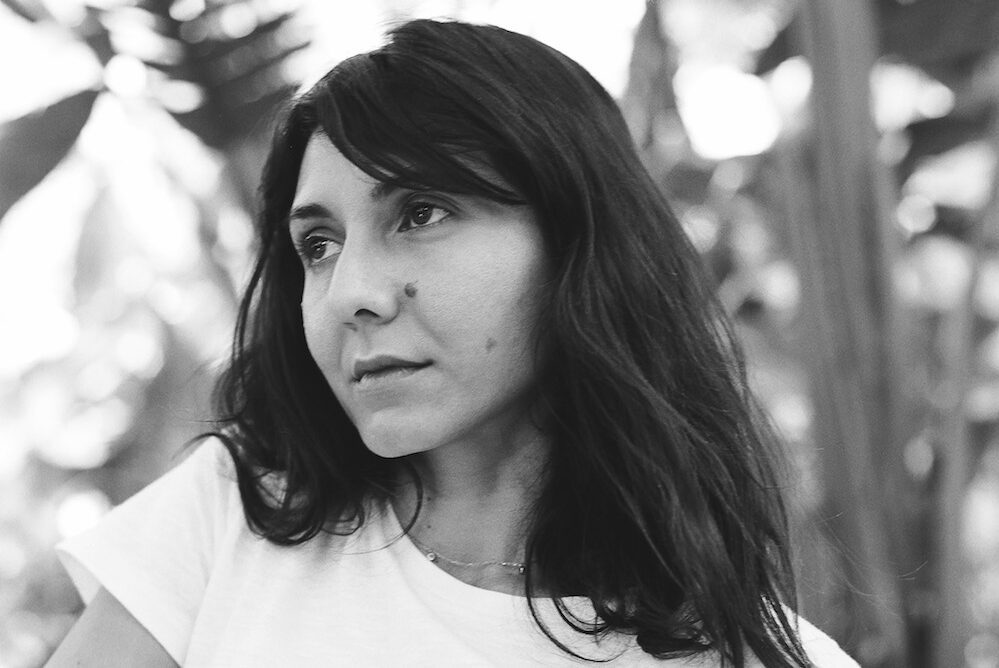
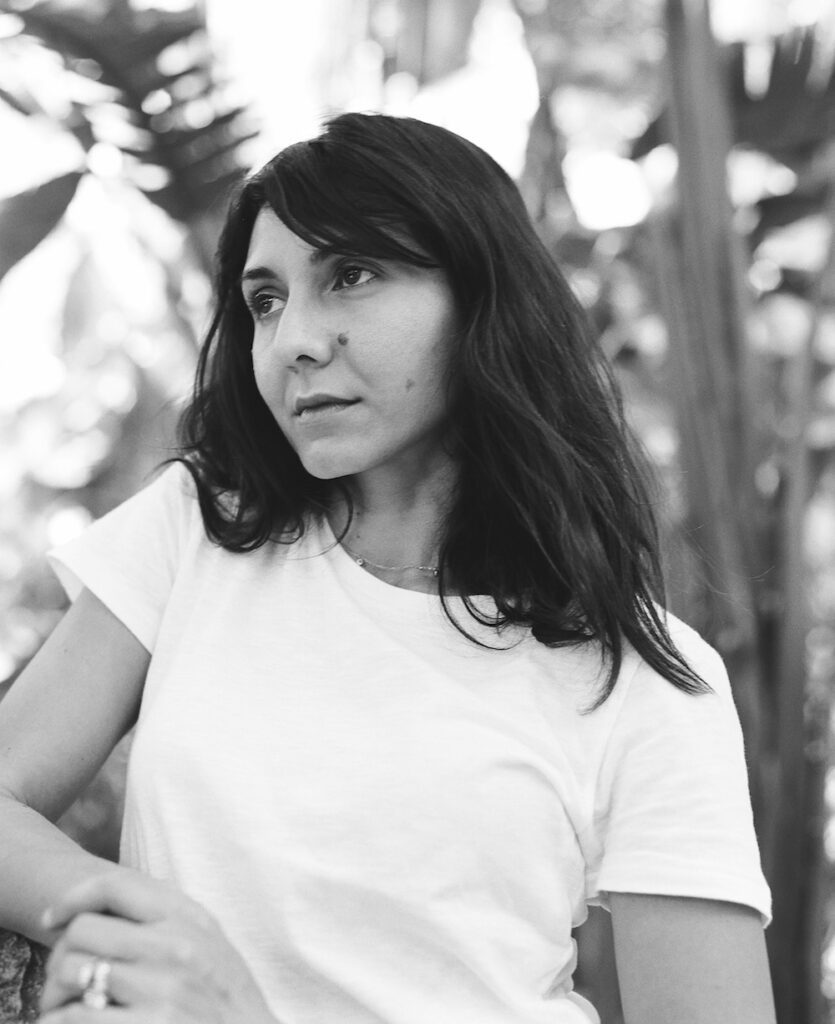
I first read the novelist Ottessa Moshfegh’s work during the pandemic summer of 2020. I had seen the hot pink spine of My Year of Rest and Relaxation on the subway, sitting on a bench in Maria Hernandez Park. It was the kind of quintessential NYC “cool girl” read that I’d normally eschew out of my own misguided self-perception, that I’m somehow above that which is popular. But sometimes things are popular because they really are good. The last year or so has seen a meteoric rise in the writer’s ubiquity, deemed “superabundently talented” by the New York Times and succinctly described by The New Yorker’s Jia Tolentino as “easily the most interesting contemporary American writer on the subject of being alive when being alive feels terrible.” Her raw talent, sharp prose and fearlessness in the face of the grotesque have earned her these adulations.
Anyway, I finally succumbed and devoured the book within 48 hours. So rarely have I read something that made me laugh the way this book did, a loud, singular “HA!” at moments that particularly signified the novel’s irreverence, like I was in on a joke that wasn’t for everybody. And Moshfegh’s fiction really isn’t for everybody, which is part of what makes it so interesting. As soon as I finished Rest and Relaxation, I handed it off to my best friend, declaring it one of the best books I’d read in years. She couldn’t finish it. “I don’t know, Mandy,” she said. “It makes me feel weird.” Yes, exactly! I thought. That’s why it’s so great! Other friends made similar remarks about that book and her other works, as if to enjoy them must come with a caveat as to why they made you feel uncomfortable. One liked Rest and Relaxation but didn’t care for the way it “glorified drug use,” while another read McGlue but couldn’t finish it due to the title character’s frequent usage of a certain modern homophobic slur, despite the novella’s setting in 1851 and the character’s internalized struggle with his own sexual orientation. While everyone is entitled to their opinions, I’d argue they’re missing the point. These facets of the work don’t serve to offend or cradle you, either way – there is no room for that in Moshfegh’s world.
I’d think she would agree, given that she told me “Fuck what everyone else thinks” when we spoke on the phone a few weeks ago, me in my apartment in Queens and she in her home in Los Angeles. “I’m not trying to appease or validate anybody,” she expanded. “I’m trying to lend an experience through my fiction – like, here, take this walk with me. I’m going to bring you to this other world, and you might experience something you wouldn’t experience in your normal life. And whether or not people are like, ‘Oh, that feels good,’ or they’re like, ‘I hate that, that’s disgusting,’ it’s whatever. I’m not TV, you know?”
And yet, so often people try to place her in a box. She personally doesn’t like to read the many takes on her, the way people will talk about her as though she’s “part of a trend, and not an individual.” A common descriptor of her creations is “otherworldly.” I get it, to some extent; her tendency toward nameless narrators and unidentified locations can certainly transport a reader to “another” world, but ultimately I would disagree. I’d say the characters she constructs are so profoundly ordinary, so ugly in their naked humanity, that it catches the bits and pieces we don’t like to talk about to the point of feeling otherworldly, if only because we don’t like to admit these things are so of our world.
The narrators and main characters certainly hit this mark: the title character in Eileen obsesses about her bowel movements, and the title character in short story “Mr. Wu” could definitely be construed as creepy or somehow deviant, given his preoccupation with the woman from the arcade. But it’s often the supporting characters that the narrators or main characters interact with who are so infinitely strange that they feel so fundamentally real. “One of the worst psychiatrists in the annals of literature,” Dr. Tuttle of Rest and Relaxation, is a prime example of this, but my favorite would be the landlady/astrologer/gossip columnist Mrs. Honigbaum of the short story “Nothing Ever Happens Here.”
The narrator, a handsome small-town Californian who moves to Hollywood to be a star, moves into her home and describes her with an unflinching specificity: “She would have been in her late sixties. She wore a dark-blond wig and large gold-framed sunglasses. Her fingernails were long and fake and painted pink. Her posture was stooped in the shiny quilted housecoat she wore when she walked around. Usually she sat behind her desk in a sleeveless blouse, her thin, spotted arms swaying as she gestured and pulled Kools from a tooled leather cigarette case. Her ears and nose were humongous, and the skin on her face was stretched up towards her temples in a way that made her look stunned all the time. Her makeup was like stage makeup, or what they put on dead bodies in open caskets. It was applied heavy-handedly, in broad strokes of blue and pink and bronze.”
And yet, he says, “I didn’t think she was unattractive.” It reminded me of that John Mulaney bit about his temp boss Henry J. Finch IV, when he describes the man’s appearance in such specific detail because he “need[ed] you to believe this is a real person [he] knew who existed in the 21st century.” The descriptors are vivid and perhaps “otherworldly,” unflattering even, but they coalesce into an image so real you can clearly imagine Mrs. Honigbaum standing next to you at the bus stop in Queens, her wig tucked beneath one of those plastic bonnets to protect it from the rain. She becomes, to me, one of the most sympathetic characters in the whole collection of stories, a pseudo-mother figure who eggs the narrator on in his quest for stardom despite his lack of talent and his goal’s inherent futility, constantly reminding him to call his own mother. Despite the superficiality and cruelty of the Hollywood rat race, you leave the story with a feeling of tenderness born of the character’s strange but wholly tangible humanity.
Riva, the best friend of the narrator of Rest and Relaxation, also exemplifies this. She’s less attractive than the narrator, or so it is narrated, and certainly less privileged. She “came from Long Island, was an 8 out of 10 but called herself a ‘New York three,’ and had majored in economics.” She struggles with bulimia, follows celebrity gossip and radiates an “envy that was very self-righteous.” The narrator constantly judges Riva’s predictable behavior and responds to it with cruelty – “‘Don’t be a spaz,’ I said when her mother’s cancer spread to her brain” – but in rare instances acknowledges her kindness, her humanity: “Everyone I knew at school hated me because I was so pretty. In hindsight, Riva was a pioneer: she was the only friend who ever really dared to try to know me.” Ultimately the ugly things the narrator says about Riva, however unflattering, serve to endear us to her, another lost, precious human being trying to find her place on this messy planet.
I asked Moshfegh how she was able to write these characters so fearlessly, unencumbered by our constantly offended culture and if she had any concern about what her readers might think about her as a result. First, she admonished me of that fear regarding my own writing. “That’s a burden. You gotta throw that out,” then continued, “Ultimately I want to write things that I’m interested in, because if I’m not interested in it, what’s the point of writing about it? I like characters that are complicated, like real people, but maybe have characteristics that will push a narrative into an interesting place. Like a completely well-balanced person, which doesn’t exist, to me feels very static. I like characters struggling with something they’re carrying around, because then they have to look for solutions, or ways out of their situation.” This relish for the complicated, the struggling, becomes all the more complex when placed into the societal narrative of female writers writing female characters.
Moshfegh’s female characters garner a microscopic critical scrutiny. Why? Their personalities and physical appearances fall all over the spectrum of femininity from “acceptable” to “unacceptable,” yet something about them is unlikeable or off-putting enough that it strikes at readers’ unconscious notion of what women are supposed to be doing in our factual world, let alone a fictional one. On one end of the spectrum is Eileen, who describes herself as “ugly, disgusting, unfit for this world.” It’s worth nothing that Eileen describes herself this way, as opposed to some omniscient narrator assigning these traits to her out of their notion of what female fitness is. She’s so disgusted by both her body and her sexual urges that she swaddles her genitals in diaper-like undergarments, and drinks so heavily that at one point she wakes up next to a puddle of her own vomit frozen in the passenger seat of her car.
Place this in contrast to the narrator of Rest and Relaxation, who describes herself as such: “I looked like a model, had money I hadn’t earned, wore real designer clothing, had majored in art history, so I was ‘cultured.’” In other words, she is everything a woman is supposed to be, has done everything a woman is supposed to do. In a profile on The Cut, Moshfegh acknowledges the intentionality of this contrast: “After I wrote Eileen I just got so sick of everybody saying how gross and ugly she was. And I was like, well, would you say that if she looks like a model? So I was like, fuck you! I’ll write a book about a woman that looks like a model. Try to tell me she’s disgusting! And that just proves you’re a misogynist.”
Still, the intentionality of this didn’t save Moshfegh this incessant scrutiny. She recalls a recent essay in the New York Times called “Heroines of Hate,” that pointed out how when many female heroines of contemporary literature, the narrator of Rest and Relaxation included, are presented with the opportunity to hate themselves or the men in their lives, they’ll choose themselves. It reads, “It’s as if the protagonists of these novels, faced with the choice between being their own worst enemies or men’s victims, have all chosen the former.” Are there no other possibilities? Moshfegh thinks that there are. “I thought it was a very unevolved take on characters, on female characters that have complicated feelings,” she says. “Why are those the choices? You know? I thought that was kind of disgusting… there’s this thing where if you have a female character who has a weakness, that somehow you’re being subversive? Because we’re supposed to love ourselves no matter what? Which is such a high order that no one could ever achieve, and if they did, they would be complete ego-maniacs.”
It’s the concept of “toxic positivity” on steroids, a direct insult to the current popular narrative of the female journey towards wellness and self-esteem that we espouse on Instagram. One that’s become so wrapped up in the destruction of the patriarchy that if women are to expose even a modicum of their dark and twisty inner monologue, even within the confines of a fictional work, it’s somehow sacrilege and must be called out.
Could it not be that we are far more complex than that? Could it be that this perceived self-loathing, as confined to Moshfegh’s female characters, emerges from an ennui with the impossibility of modern existence, and has nothing to do with their femininity at all? From where I stand, it looks a lot more like that. Even when they do admit feelings of hatred, they don’t seem so much wrapped up in this feeling towards themselves or their male counterparts as much as the world in general, their ambivalence and spiritual exhaustion. The narrator of the short story “The Weirdos” moves in with her significant other and declares: “I hated my boyfriend but I liked the neighborhood.” The narrator of Rest and Relaxation seems similarly apathetic, repeatedly seeking out an older lover who seems to be just as mutually disinterested when “a romantic urge surfaced now and then.”
The sex they share is neither intimate nor pleasant, merely an itch to scratch or a game to play, the way so many modern situationships can reek of the sense that we ought to do this because we feel we should be with someone, even if we are not particularly taken with that someone – a mating ritual devoid of intentionality. In one of my favorite moments in Rest and Relaxation, the narrator begins a series of increasingly manic phone calls and voicemails to her lover, beginning at 5 a.m. and continuing in shorter intervals, more outrageous lies: she’d been sexually assaulted; she’s HIV positive; she’s thinking about getting a boob job; she needs financial advice. It goes on and on until:
“At nine o’clock, I called again. He answered.
‘What do you want?’ he asked.
‘I was hoping to hear you say you miss me.’
‘I miss you,’ he said. ‘Is that it?’
I hung up.”
Read it however you like, but I don’t think she behaved this way out of a conscious self-loathing, or a hatred for him either. I think there was a gaping hole inside her that had to do with so much more than just herself, or her relationship with him, and this hollow reciprocation of her needs didn’t fill it. More of a 21st century unease, a cosmic uncertainty of what we’re supposed to do or be that we quash with any number of vices – alcohol, or drugs, or meaningless sex. When you think about it that way, it feels rather familiar, no? Almost uncomfortably so. And it has no gender.
After all, we’re all just trying to live, or as Moshfegh puts it, “These are the things that are going to feed me, literally, with sandwiches.” And while it’s true that when the artist decides to share work with the world, they open themselves up to criticism, I think it’s also a truth well-acknowledged that female writers writing female characters carry heavier scrutiny than male writers doing the same. The Los Angeles Times even concedes this in another profile on Moshfegh: “Literary culture demands a personality test of women that few men have to take, and especially of women who write frankly about women’s experiences, making them seem somehow answerable to readers, available, in a way that (to pick another first-person novelist more or less at random) someone like Richard Ford never has been.” If you don’t believe me, go ahead and spend a few hours browsing r/menwritingwomen on Reddit.
“It’s very difficult living as a writer, I mean fuck!” Moshfegh admits. “It’s hard to make a living as an artist of any kind.” As she navigates the world with this somewhat new, albeit well-earned, relevance, she abstains from the self-indulgence of social media and tries not to dwell too heavily on the capitalistic forces that sway the titans of the book industry. She notes that she’s “much more interested in what the author chose to title [a work]” when describing a recent conversation with her partner (novelist Luke Goebel) about how superficialities like a book’s cover can affect a reader’s experience. “There’s a certain buy-in that has nothing to do with the quality of the work, based on who’s producing it as something for sale,” she says. “When you hear a song on the radio, it’s as though it’s been officially approved by the radio gods, and therefore it’s something worthy of being listened to. And when you see a book and it has a fancy jacket and quotations on it from positive reviews, it’s like, it’s okay to like this book, because it’s officially good, because we’re telling you it’s approved.”
Recently she’s begun working as a screenwriter in Los Angeles, which has offered some relief from the exhaustion of the book world. She also spent her quarantine year penning a new manuscript that takes place in the Middle Ages (what will that look like? I immediately wonder), describing how her recent shift into script-writing has eased her approach to her novels. “You never want to feel oppressed by reviews, or what’s selling and what’s not, and what other people find valuable… it’s better to be focused on your creative work, right?” she explains. Referring to her film work, she adds, “I found that if I have more of an outlet, my books are less precious to me in that way… I don’t have to put so much pressure on ‘this is what everyone wants next.’ I feel a little bit more free.”
So in the end, cut the lady some slack. Allow her to continue to transport us to these fascinating, sometimes dingy corners of our ever-expanding world, and stop trying to make it what it isn’t. Just let it be what it is.

